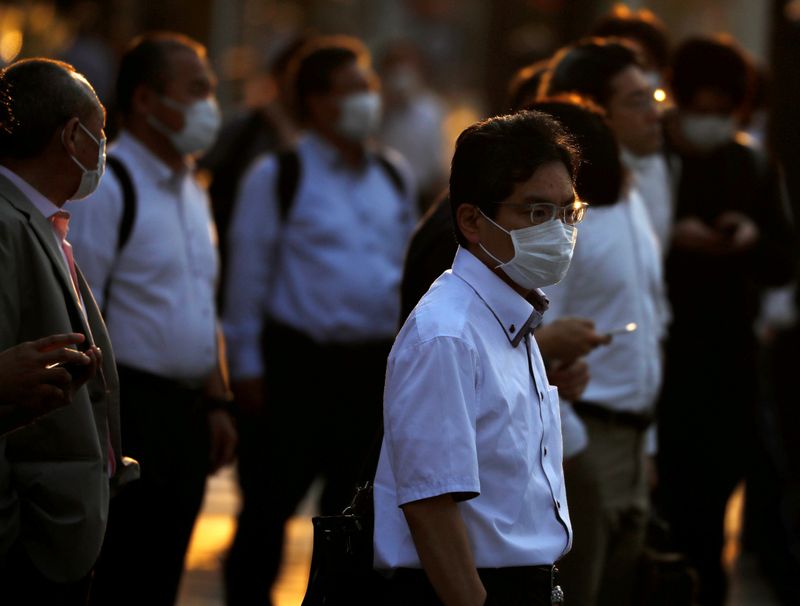By Hiroko Hamada and Leika Kihara
TOKYO (Reuters) - Whoever succeeds Shinzo Abe as Japan's prime minister will be confronted with growing signs that the job market is deteriorating in an economy laid low by the coronavirus pandemic.
Top government spokesman Yoshihide Suga is emerging as a front-runner to become next premier, heightening the chance the government will continue down the policy course set by Abe - notably the "Abenomics" strategy aimed at reviving the economy.
But the widening damage from COVID-19 is threatening job creation, among the few successes of Abenomics.
Japan's unemployment rate crept up to 2.9% in July and job availability fell to a more than six-year low, data showed on Tuesday. Nearly 2 million people lost their jobs in July, about 410,000 more than in the same month last year, with the number of job losses rising for six straight months through July.
Among the hardest hit have been non-permanent workers, who make up nearly 40% of Japan's workforce and are concentrated in industries like hotels, restaurants and entertainment.
The number of temporary workers fell by 1.31 million in July from a year ago, the biggest drop in more than 6-1/2 years.
"We're seeing more non-permanent workers lose their jobs, especially in industries vulnerable to the pandemic," said Shinya Kodera, an economist at Mizuho Research Institute.
Government subsidies and Japan's unique labour practice, prioritising job security over wage hikes, have kept the jobless rate low compared with around 10% in the United States.
But the pandemic is even starting to affect hiring of university graduates, who until recently had no trouble landing jobs due to chronic labour shortages in an ageing population.
As of Aug. 1, the ratio of students with job offers stood at 83.7%, 4.5 percentage points below the 2019 level, according to employment information provider Disco (OTC:DSCSY) (6146.T).
Analysts say conditions have already taken a sharp turn for the worse as companies face pressure to slash labour costs.
"In Japan, workers can't be laid off easily even when the economy turns bad. So firms will make adjustments in graduate hiring," said Taro Saito, executive research fellow at NLI Research Institute.
Naoki Ishihara, a 24-year-old graduating this year, had a job offer from a design company cancelled in February. "It was an offer for a job that I wanted to do, so it was a shock when it was withdrawn," he told Reuters.
Job losses may spike when government subsidies to firms who keep employees under furlough end in December, analysts say.
Nobuyuki Sato, who owns a Japanese-style hotel in Yamagata, in northeast Japan, says the subsidies have helped him keep jobs even when his hotel was closed.

"I'm hoping the government will extend the subsidies for another year," Sato said. "It's hard to expect the infection number to start falling early next year," he said.